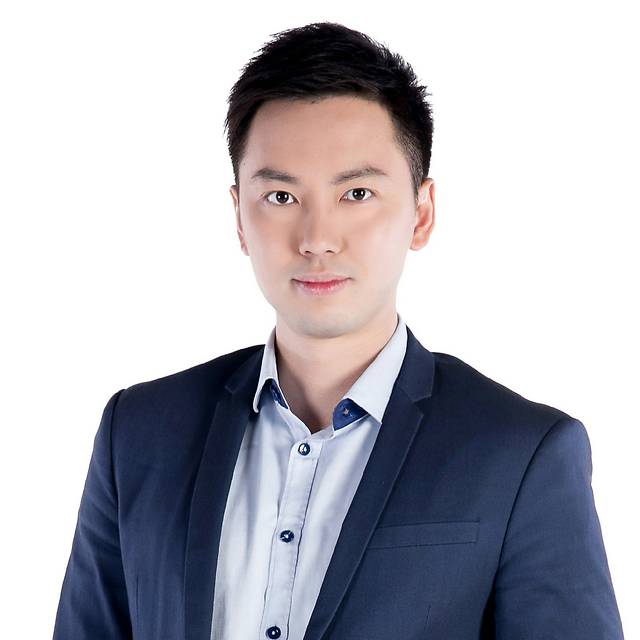'Your life can be finished in one moment': Ukrainians show strength, resilience as war passes one-year mark
CNA's Jeremy Koh goes to Ukraine and sees first-hand how its people get on with life as the war with Russia rages on.
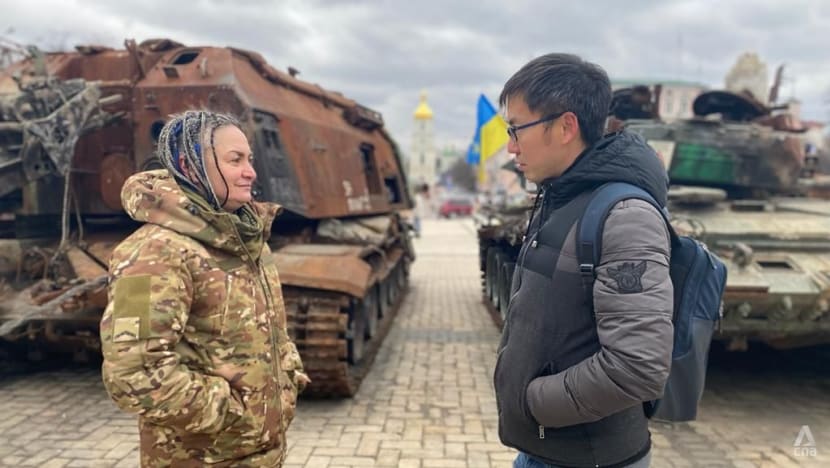
CNA's Jeremy Koh speaking with a former journalist who's now a volunteer soldier with the Kyiv Territorial Defence Forces. (Photo: CNA/Jeremy Koh)
KYIV: The skies had just turned dark in Kyiv.
We were making our way back to the hotel after a long day of filming, and the mood was jovial and relaxed.
My crew and I were discussing what to eat, when our security consultant turned to us, and said, “We’re getting some sort of intelligence suggesting that the Russians might do something tomorrow, so when you head back, pack up your stuff and be ready to move off anytime.”
This was the day before the first anniversary of Russia’s invasion of Ukraine, and the Ukrainian government, as well as analysts, had warned that Russia might launch a fresh offensive the following day, so that its President Vladimir Putin can have a symbolic victory to show his people.
The mood in our vehicle immediately changed.
We weren’t panicking, but the small talk ceased, as we focused on what lies ahead.
GETTING TO UKRAINE
We had travelled to Lviv, a city in western Ukraine, and Kyiv to cover the first anniversary of the war.
Getting in wasn’t easy.
First, we had to apply for accreditation from the country’s Ministry of Defence, and this takes at least 30 days to process.
The day we flew off to Poland, we had still not received our accreditation, and without that, we cannot apply for visas to enter Ukraine.
But fortunately, it came through the day we touched down in Warsaw, the capital of Poland, and we headed to the Ukrainian consulate in the city to process our visa.
After getting it, getting into Ukraine was a straightforward process, or as straightforward as can be given that the country is at war.
From Warsaw, we drove to the border, and then to Lviv, a journey which took us about seven hours where previously, we could have flown in to Lviv.
But Ukraine’s airspace is closed to civilian flights.
TELLTALE SIGNS OF WAR
It’ll take us another eight hours to drive from Lviv to Kyiv, so we decided to spend the night in Lviv.
When we arrived in the late afternoon, the city looked normal.
People were out and about, and the traffic was fairly busy.
There were also teenagers skateboarding in a square in a central part of the city.
But look closer, and there are telltale signs that the country is at war, however normal Lviv feels.
Some windows, especially in churches, were boarded up.
And the city council had conspicuous amounts of sandbags at ground level.
Still, by and large Lviv felt relaxed, and even at night, the bars and restaurants were busy.
And in the morning, people are walking their dogs as trams trundle through the cobblestone streets of its UNESCO-listed Old Town.
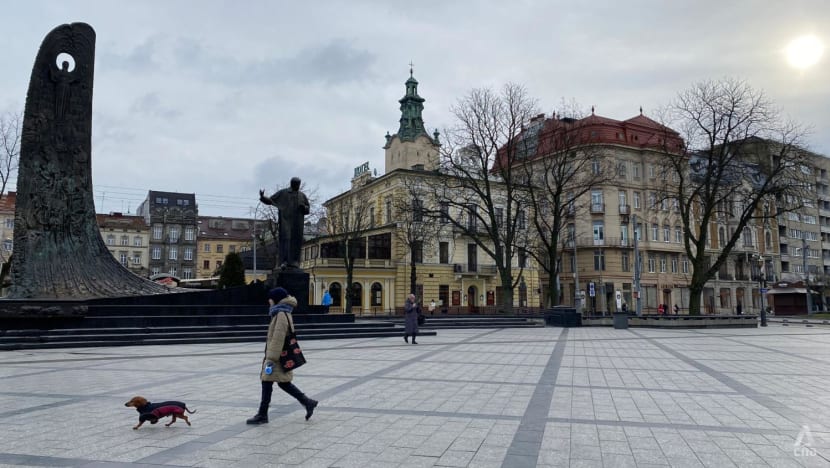
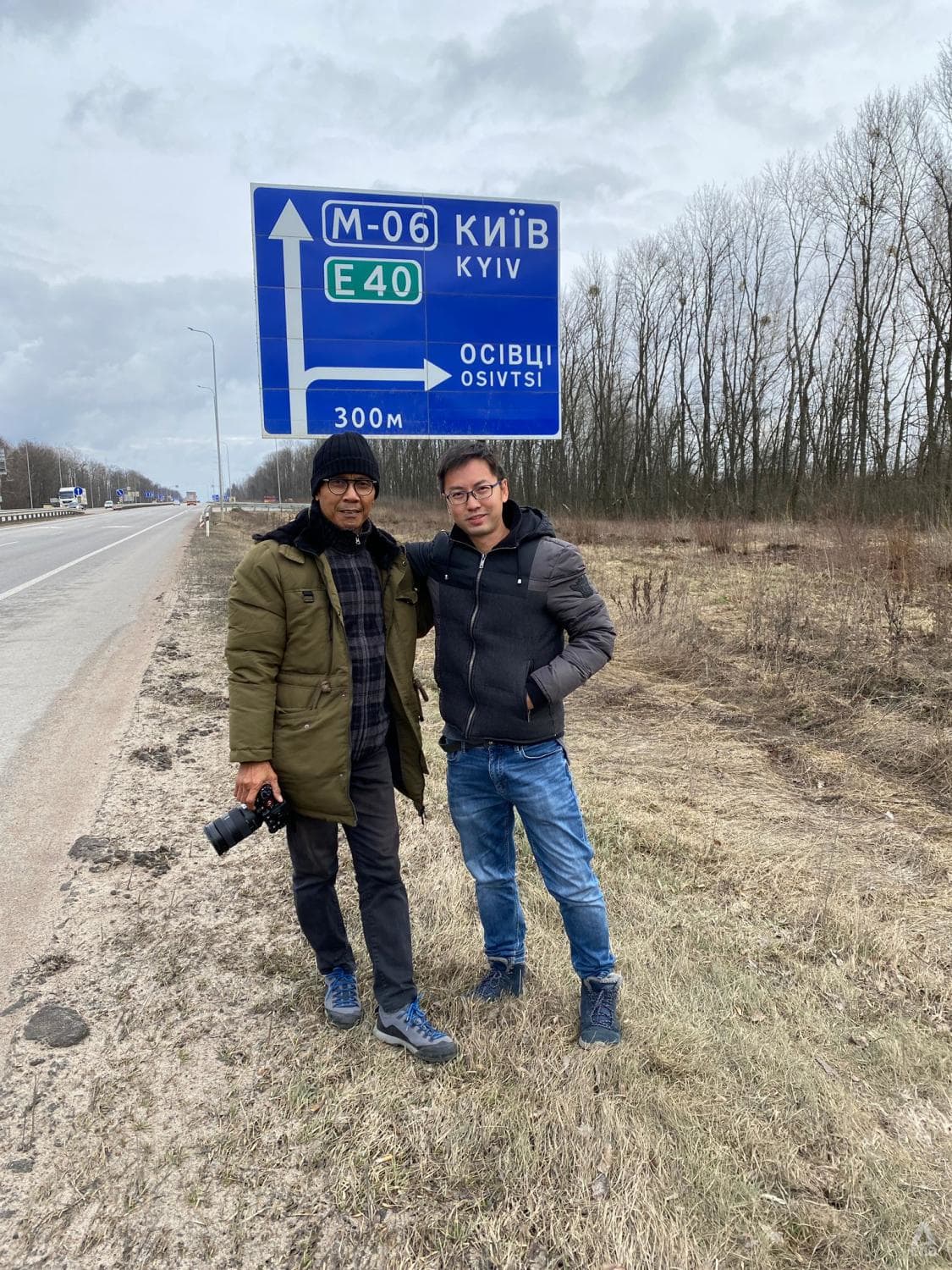
MILITARY PRESENCE IN KYIV
It was a slightly different story when we headed to Kyiv, a city which had been subjected to several Russian attacks, and which President Putin wanted to capture at the start of the war.
During the day, the city was fairly bustling.
The shops were open, and people who had money could eat out in restaurants should they choose to do so.
But unlike Lviv, there were more men in military fatigues on the streets.
And by nightfall, the city is largely empty.
There is a curfew in place from 11pm to 5am, so most eateries will shut by 9pm so its employees can get home.
Also, there are fairly regular air raid sirens in Kyiv – about one a day.
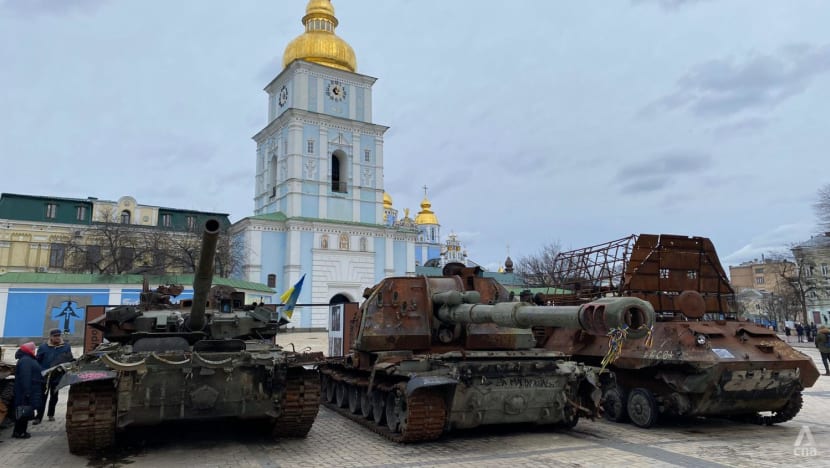
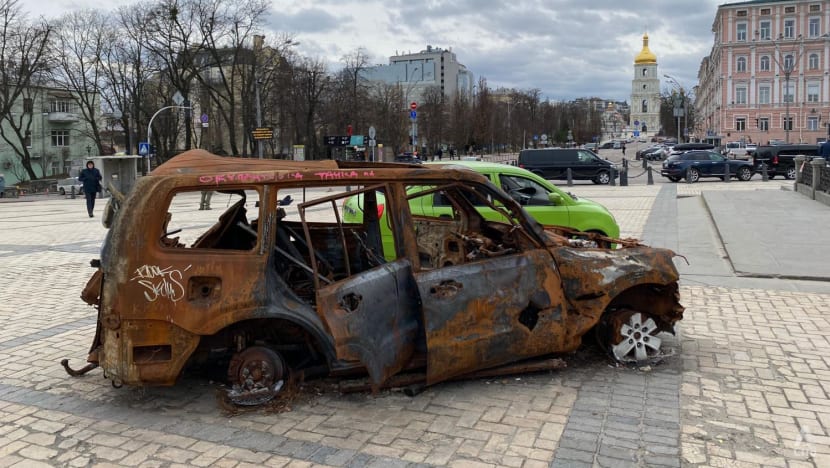
DEFIANT
Despite the country being at war, the Ukrainians I spoke with, at least the ones who stayed, remained defiant.
They say that if everyone were to leave the country, there would be no Ukraine left to defend.
One of them lives just about 400m away from a power plant, and given that Russia has been targeting Ukraine’s energy infrastructure, she faces some risk.
So for their safety, she has sent her three children aged between 10 and 23 to live in Barcelona, Spain, though she and her husband are staying put in Kyiv.
“Of course I’m afraid because you understand that in one moment, everything can just disappear. Your life can be finished in one moment,” she said.
Most Ukrainian men aged between 18 and 60 have been banned from leaving the country, in anticipation that they may be called to fight.
And with the war now entering its second year, it’s hard to find a Ukrainian who doesn’t have strong feelings about it.
Many blame not just President Putin, but also ordinary Russians whom they blame for being complicit.
And one even told me that it’ll be good if Ukraine can build a wall around its borders after the war, to keep the Russians out.
“We don’t want anything to do with them anymore. They can stay on their side, and we will stay on ours,” he said.
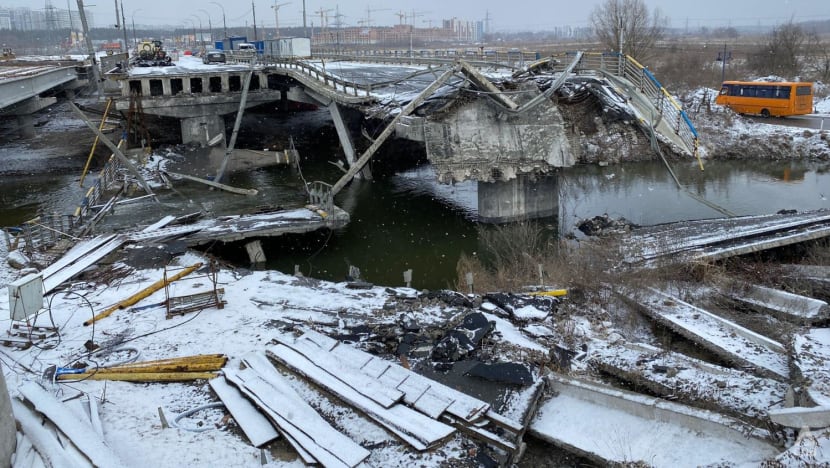
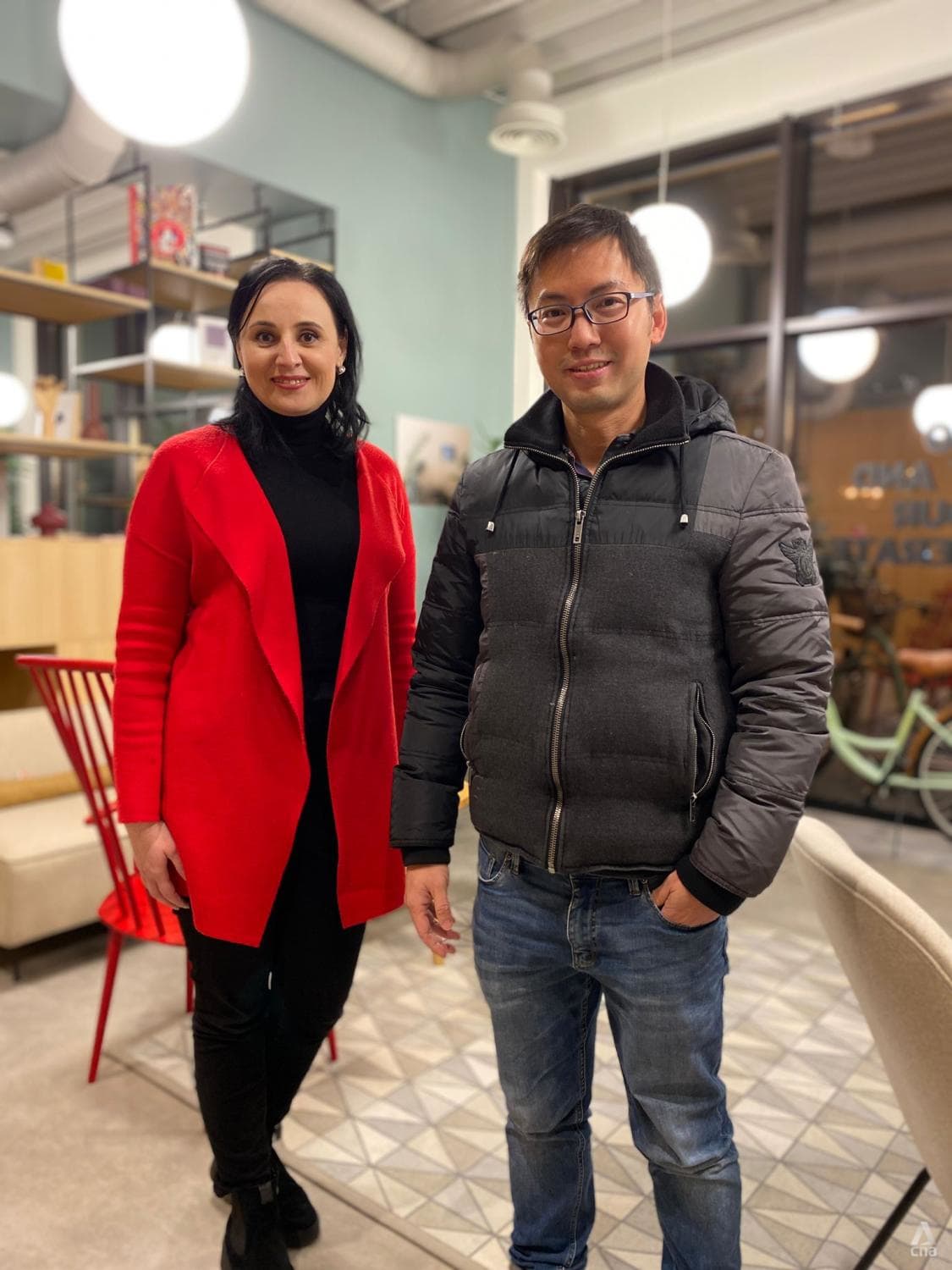
WAR OF ATTRITION
With neither side able to deal the other a knockout blow, most analysts expect the conflict to settle into a grinding war of attrition.
An intelligence update from the United Kingdom’s Ministry of Defence, for instance, suggests that Russia’s campaign now likely primarily seeks to degrade the Ukrainian military, rather than being focused on seizing substantial new territory.
And it adds that the Russian leadership is likely pursing a long-term operation where they bank that Russia’s advantages in population and resources will eventually exhaust Ukraine.
Already, Ukraine’s economy is in tatters, though it has stabilised somewhat after a year of war.
Last year, it shrank by a third, the largest fall since Ukraine’s independence from the Soviet Union in 1991.
But Ukraine’s central bank predicts GDP will grow by 0.3 per cent this year, while the economy ministry forecasts 3.2 per cent growth.
Still, it’s clear the challenges for Ukraine ahead will be formidable, even after the war.
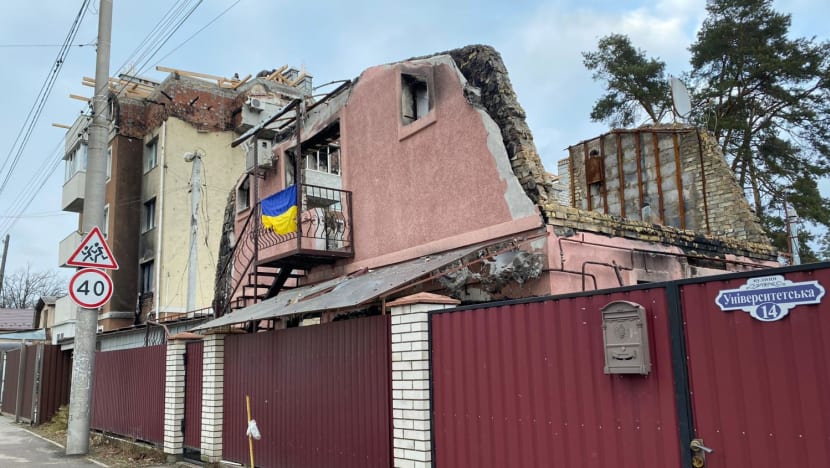
SCARS OF WAR
Bucha lies just a 40 minute drive away from Kyiv in smooth traffic, and it was one of the first towns seized by Russian forces in their advance towards the capital.
And though they only occupied Bucha for slightly less than a month, the physical and emotional scars remain.
All across the town, there were damaged buildings, and shrapnel-riddled gates.
We also visited the site of a mass grave which was located just next to a church.
But at the same time, there’s also massive rebuilding.
Bucha’s deputy mayor Mykhailyna Skoryk says that’s because they don’t want Bucha to just be a city of tragedy, and they want it to be a city of Ukrainian success and Ukrainian rebuilding.
But she also said that while Bucha was like a middle class suburb with young families before the war, it’s a different story now.
She says most of these families had left after the start of the war, and they’re working hard to bring them back now.
“The Russians didn’t respect the Geneva Convention or any civilian rights. So young families have to hide their children. And that’s why they stayed in Poland, in Germany, and all over Europe,” she says.
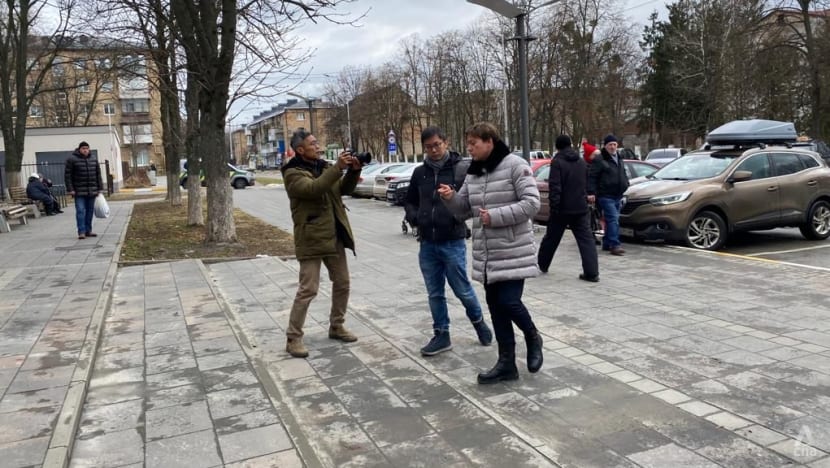
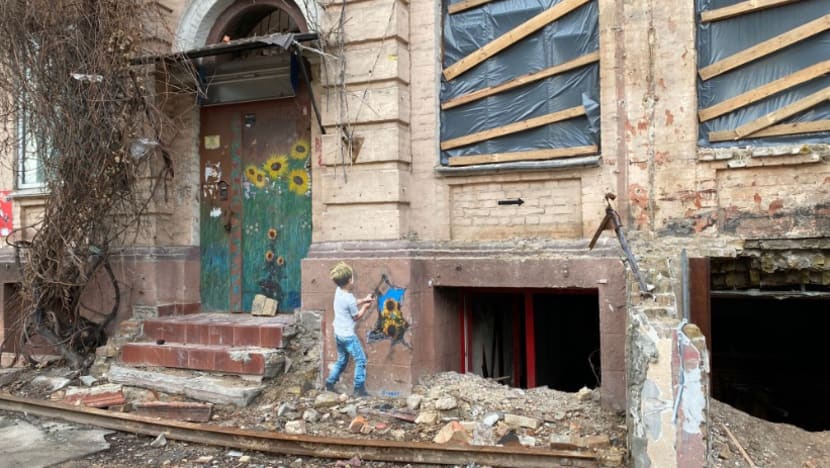
MEETING ZELENSKYY
Back in the hotel on the eve of the first anniversary of Russia’s invasion of Ukraine, after our security guys gave us a briefing, we headed to our rooms to pack, and then we called our bosses.
They gave us the go-ahead to leave anytime we feel unsafe.
But the night curfew was starting in a few hours’ time, and there weren’t many other places we could head to in the middle of the night.
So we decided to stay on.
Surprisingly, the night was calm and there wasn’t even an air raid siren.
And when we woke up, everything still looked normal, though there were slightly less people on the streets as schools have been told to move their classes online, while government employees have been told to work from home.
But we were gearing up for a possible news conference by President Volodymyr Zelenskyy.
All day, we were checking our phones to see if the accreditation had gone through, and we finally got it hours before it was due to begin.
But it came with a notice that we were not to disclose any information that will directly or indirectly indicate the venue of the event until it’s over.
When we finally arrived at the venue, it was as if all the journalists in town had descended on the place.
This even though I knew many had not managed to get the accreditation.
When the news conference finally started, President Zelenskyy was just as I imagined him to be.
Holding court for about two-and-a-half hours, he was at times sombre and humorous, and he even obliged an Azerbaijani journalist who wanted a selfie with him in the middle of the news conference.
RESILIENCE
We only spent slightly more than a week in Ukraine, but throughout I was struck with the resilience and strength of the Ukrainians I spoke with.
Many had personal stories of loss and trauma.
But yet they were very eager to share their stories with me, saying it’s important that the world should know the truth.
40-year-old Andriy Levanchuk who helped to evacuate people through Irpin to safer areas, at great personal risk told me, “Some people think it’s not true the Russian soldiers can shoot people just because he’s Ukrainian.”
“But it’s true, and I think it’s important don’t forget about it and know who is the killer.”
The UN human rights council is set to meet today in a united call to condemn Russia’s invasion of Ukraine and extend its investigation into war crimes in the conflict.
This will be the first presided over by new UN rights chief Volker Turk.
Jeremy Koh is currently in Poland to speak with Ukrainian refugees.








